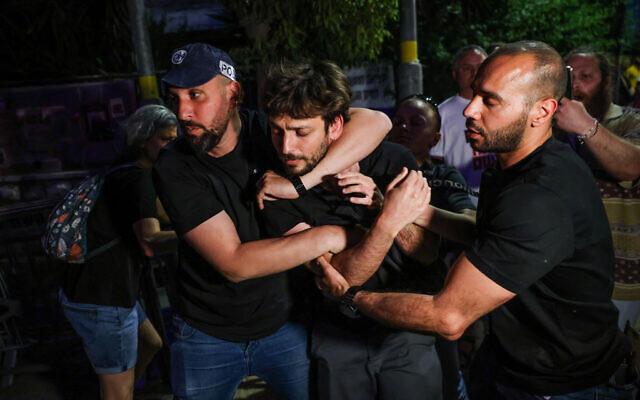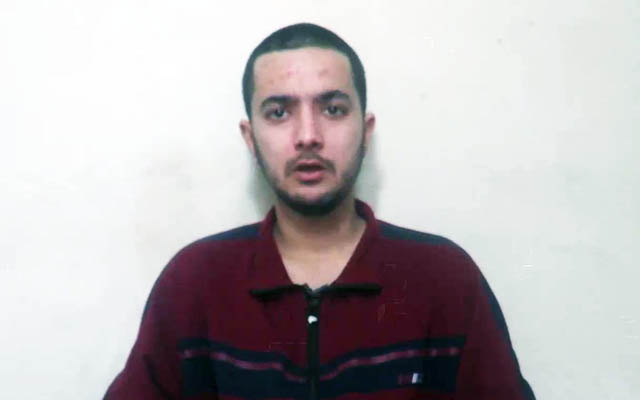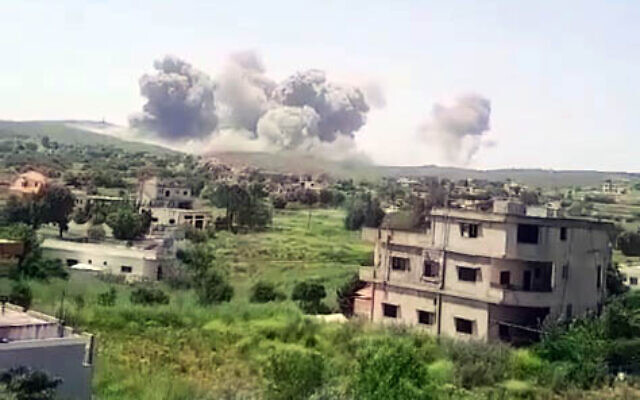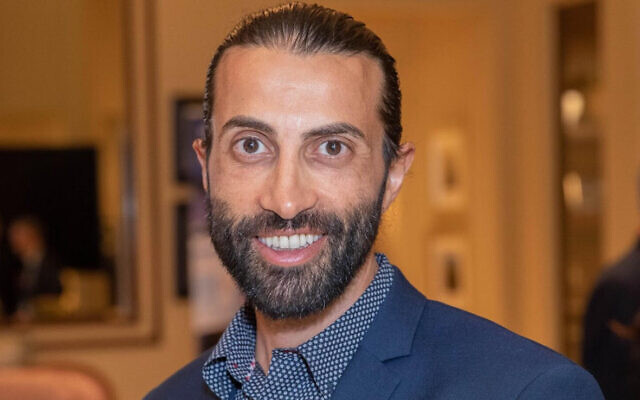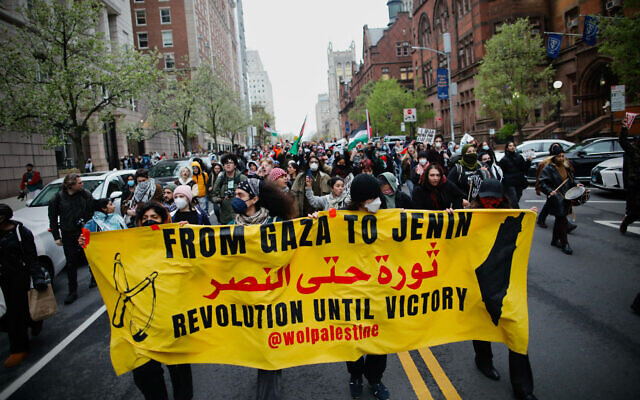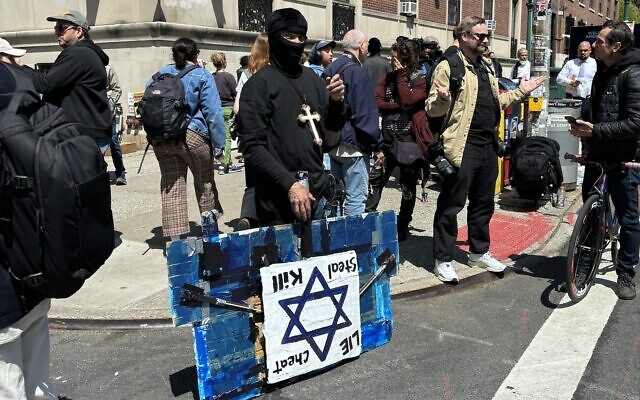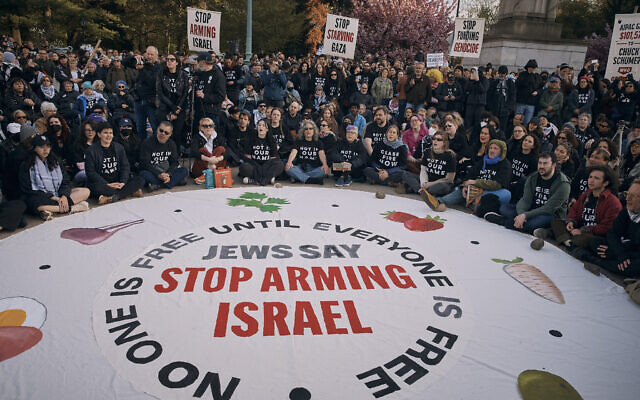Ukrainian nationalist to Jews: ‘Get used to our rules’ or be punished
Freedom party branch head calls for minorities to be ‘put in their place’ amid dispute over statue of leader linked to pogroms
Sue Surkes is The Times of Israel's environment reporter
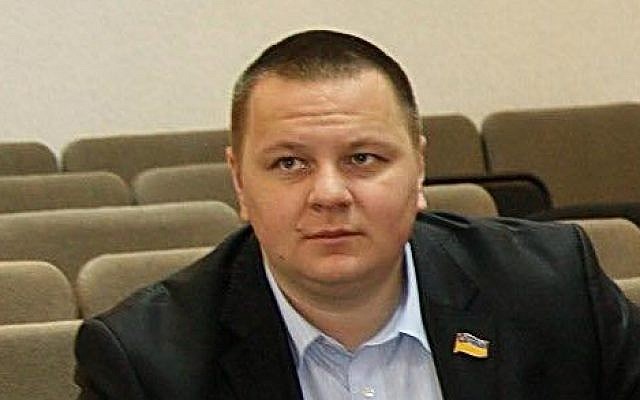
A firebrand Ukrainian nationalist last week called for Jews to “get used to our rules” or be punished, in an escalating tiff over a new statue of Symon Petliura, who is blamed for the murder of tens of thousands of Jews during the Russian Revolution.
The statue was unveiled earlier this month by officials in Vinnitsa, in an area of the city once known as Yerusalimka (Jerusalem), just some 200 meters from a small functioning synagogue.
Using the offensive word for Jews — “Zhydy” — Volodymyr Bazelyuk, head of the Vinnitsa branch of the Ukrainian nationalist opposition party Svoboda (Freedom), posted on Facebook, “Do not tell us how to live and whom to put monuments to on our land! If you want to live with us, get used to our rules, and if not, go to your land or be punished,” the Ukrainian-Israeli website newsru reported on Saturday.
Accusing the Jews of having planned a man-made famine in Soviet Ukraine in 1932 and 1933, during which seven to 10 million people died, most of them ethnic Ukrainians, he urged his countrymen to “put the national minorities in their place.”
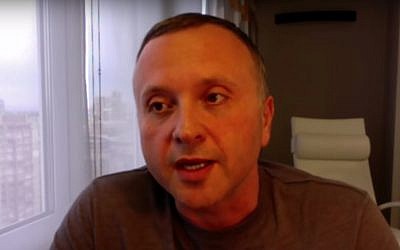
The episode, known as the Holodomor, has been recognized by Ukraine and 15 other countries since 2006 as a genocide carried out by the Soviet government.
The Svoboda party currently has four members in the Ukrainian parliament.
Eduard Dolinsky, executive vice president of the Ukrainian Jewish Committee, posted on Facebook in response that Bazelyuk’s remarks constituted a criminal offense and that he would be complaining to the Prosecutor’s Office and the police.
On Friday, Israel’s ambassador to the Ukraine, Eliav Belotzercovsky, linked the statue to rising nationalism in the country.
“This trend is something that Israel’s representatives are dealing with, and we are trying to see how we can deal with this phenomenon with the best means we have,” he said.
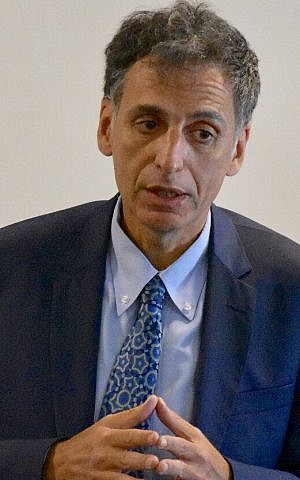
“Nevertheless, the authorities here have their own interests, and they are not always in line with ours, not only in Vinnitsa. This is also the issue with several streets of Kiev, as well as all kinds of other nationalist trends that are on the rise in the country,” he said.
Israeli lawmaker Ksenia Svetlova (Zionist Union) protested to Vinnitsa’s mayor and to the Ukrainian ambassador to Israel, saying the statue was inappropriate given Petliura’s reputation for “many pogroms in Ukraine, in which tens of thousands of Jews were killed.”
Soldiers of Petliura’s Ukrainian People’s Republic were responsible for 493 out of 1,236 recorded pogroms as well as other violent incidents against Jews in 524 Ukrainian towns during the Russian Revolution, from 1918 to 1921. Between 35,000 and 50,000 Jews were killed in the violence, although Petliura’s actual role remains unclear.
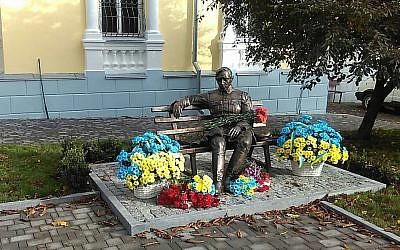
The erection of the statue is part of an ongoing move by Ukrainian authorities to replace Russian street names and monuments with Ukrainian ones as a reaction to the ongoing war against Russian-backed separatists in the eastern Ukrainian areas of Donetsk and Lugansk.
Vinnitsa, located 260 kilometers (160 miles) southwest of the Ukrainian capital, Kiev, already has a street named for Petliura.
Gavin Rabinowitz contributed to this report.



